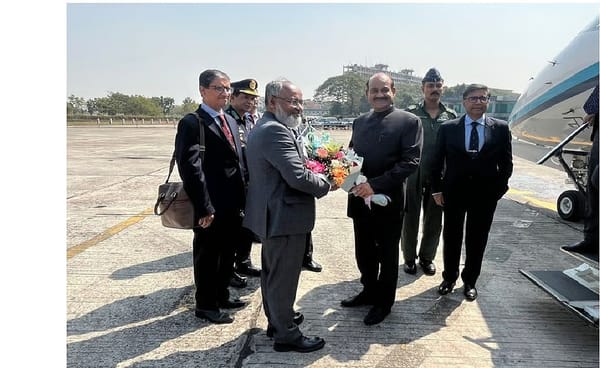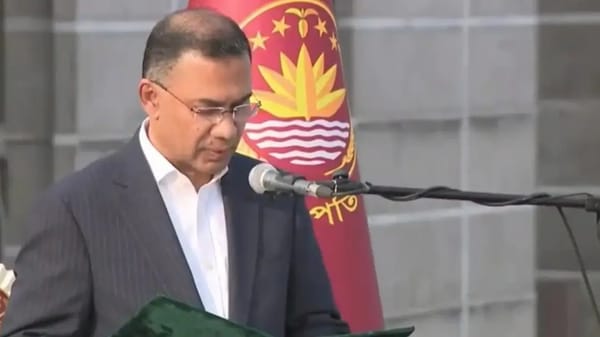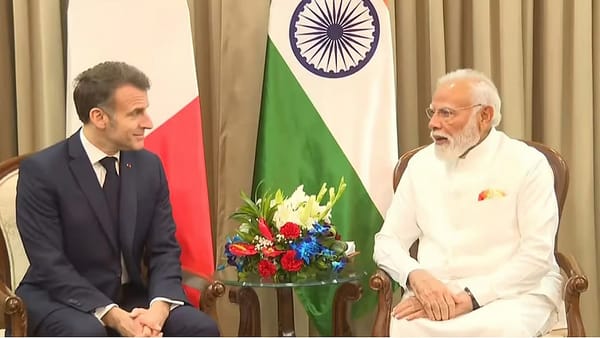I view my NS with pride: MP Hri Kumar
MP Hri Kumar speaks about his recent suggestions on National Service Duty for non-citizens that he debated in social medias;

MP Hri Kumar speaks about his recent suggestions on National Service Duty for non-citizens that he debated in social medias;
I view my NS with pride, just as I am sure many Singaporeans do. NS is a common touchstone for us. We will never do anything else quite like it for the rest of our lives. Even decades later, we talk about it with friends. It brands us as Singaporeans. When people talk about a “Singaporean core”, NS is one of the ingredients that lie at the heart of it.
Earlier this month, I wrote a series of posts on my Facebook page suggesting that we impose a national defence tax on non-citizens as a way of sharpening distinctions between citizens and non-citizen residents, and using the proceeds to benefit our NS men.
I was happy that my posts sparked a lively debate. It brought into focus the larger issue of whether Singaporeans, new citizens, PRs and foreigners are successfully integrating in our society, and the implications for us if they do not. The problem is that we have largely dealt with these issues on a superficial level.
I would like to share few things I have been told online and in person in the course of the debate. They raise serious issues which I hope the Government will look into.
Many Singaporeans recognise and appreciate the contributions of new citizens, PRs and foreigners. They have no desire to discriminate against them. They acknowledge that this country would not be the success that it is without their contributions.
They want to see new citizens and PRs genuinely integrate better with Singaporeans and be part of our society. We want them to demonstrate that they regard this land as their home; that they believe in our cause; and that they too have a stake in Singapore’s future. What grates most on our nerves is the thought of those who seek the privilege of citizenship and permanent residency do so purely out of convenience or economic gain, and that they will abandon us at the slightest risk or sign of trouble.
That is why National Service is such an emotional topic. Doing National Service, or giving an undertaking that your son will do it, is a tangible demonstration of that commitment. Many talk about shedding blood, sweat and tears. But it means more than that. It forges a common bond which is unique to us, and in some ways, helps define who we are.
Most demand that those liable to do NS must perform their duty. It is not enough that NS-dodgers pay a penalty and are barred from returning to Singapore. We rather that they stay and serve with us. But we must accept the reality that some PRs will arrange for their sons to leave when they reach a certain age. Not a single person who has posted or given their views believes that the current sanctions against this are adequate.
That was why I proposed the National Defence Duty - as a practical response to a practical problem. We cannot force people to remain in Singapore who do not want to stay here. But we can make it so costly that they would think twice, three times before taking PR status or arranging for their child to dodge NS. As with all proposals, some liked it; some criticised it; some felt it did not go far enough. Some even accused me of proposing that PRs who were liable for NS be allowed to pay their way out of their obligation. Of course, I never made any such suggestion.
An Action Plan
This issue should be tackled as part of a national effort to promote integration. We can and need to do a number of things.
While foreigners and PRs are important, we must also demonstrate that there are privileges in being a citizen. We have thus far largely dealt with this on a piece-meal basis, with different Ministries announcing changes or measures at different times, whether it is securing places in primary schools, differentiating medical fees or property ownership. We should have a comprehensive review of all these measures and look at how we can make changes on a fair and principled basis. Some have said that such a move would be xenophobic. By that definition, any privilege given to a citizen is xenophobic. Of course, it is not. It is legitimate for a government to draw distinctions between its citizens and non-citizens. In any case, I firmly believe most Singaporeans are not xenophobic. But they are genuinely unhappy because of perceived unfairness of treatment
We should have new citizens and PRs perform some form of compulsory service. If NS is not suitable by reason of age or other circumstances, other forms should be introduced. This can be for short periods annually, much like how Singaporean men do reservist training. The point is not to discourage foreigners from sinking their roots here, but to emphasise that they now have a stake in this country as well. One commenter on my Facebook page mooted the idea of having them serve in the Volunteer Special Constabulary (VSC). It is worth exploring. There are even practical benefits as it helps with the current manpower shortage in the Home Team.
Finally, we need to have a more robust and effective response to those who undermine our efforts to integrate. I have spoken about PRs who send their sons away to avoid NS. We also need to deal with the allegation that some employers favour hiring foreigners at the expense of Singaporeans, or retrench Singaporeans before releasing their foreign staff. The story is always different depending on who you speak to – employers who say they cannot find Singaporeans despite their best attempts or that Singaporeans are unrealistic about pay and benefits; Singaporean employees who say they have been discriminated against because their employers want to hire cheaper foreigners or help their fellow nationals.
We have lost our way somewhat on integration. It is not too late to get back on the right road. The Government must lead the national debate on immigration and integration. It should come up with a comprehensive package which Singaporeans, PRs and foreigners can accept as sound, compulsory community service, monetary and non-monetary measures, carrots and sticks.
We are very different from the Singapore of the 1970s and we will be a different Singapore in 2030. Nonetheless, we must remain a multi-racial, multi-religious society defined by values embodied in our pledge of unity, democracy and equality to achieve happiness, prosperity and progress for all.




